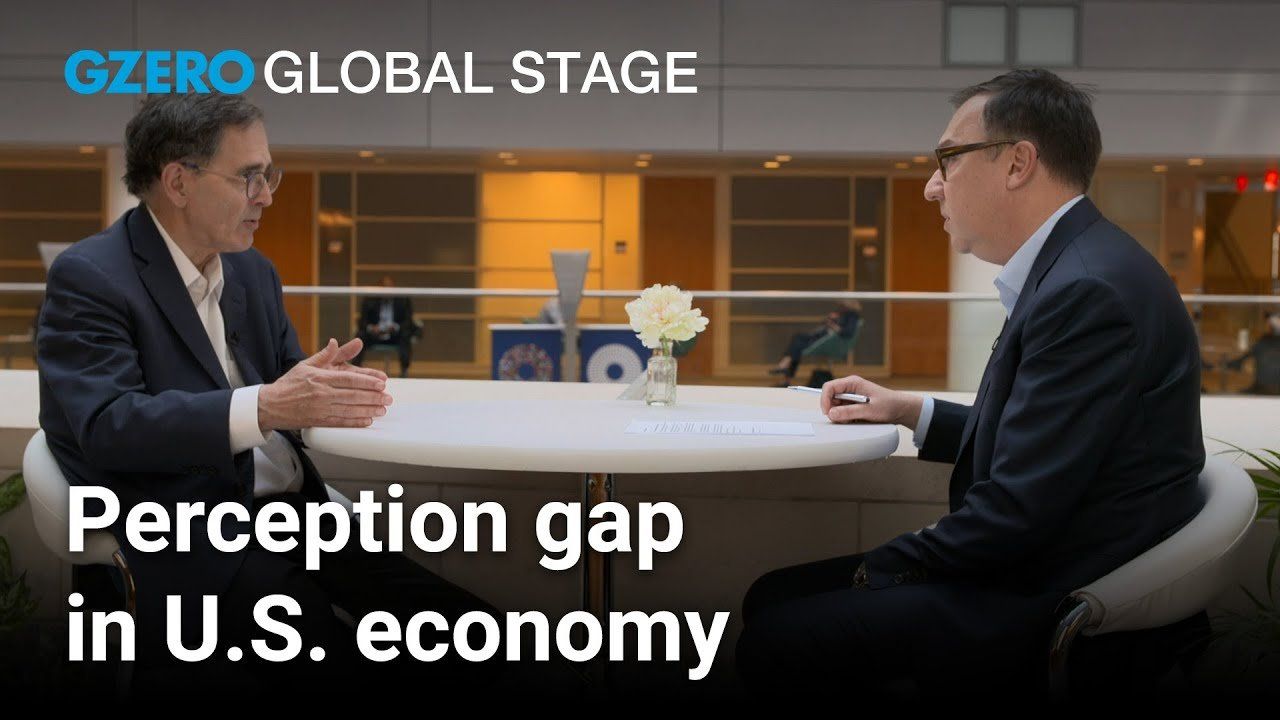October 28, 2024
As the candidates make their final arguments in the 2024 US Presidential Election, the economy is front and center on the minds of voters. Despite all signs indicating stable and above-trend growth in the US, many Americans feel uncertain about how well the economy is doing, said Robert Kahn, Managing Director of Global Macro-Geoeconomics at Eurasia Group. He discussed the gap in US economic perception versus reality with GZERO’s Tony Maciulis at the IMF and World Bank Annual Meetings in Washington, DC, in a Global Stage interview. Kahn noted that heightened political polarization has skewed views of economic performance while lingering geopolitical shocks and high prices add to concerns. Kahn emphasized that there is an element of worry around the “legacy of the pandemic…that Vice President Harris is just really struggling to overcome” even though underlying data proves otherwise. The two also discussed former President Trump's accusations that the Federal Reserve is "playing politics" with interest rates and what the impact would be globally if Trump were, as president, to assert a heavier hand in decision-making at the central bank.
Watch more from Global Stage.
More For You
- YouTube
For many in Iran, it’s a waiting game for how long Ayatollah Khamenei has left to live.
Most Popular
An army soldier stands guard at a post at the Friendship Gate, following exchanges of fire between Pakistan and Afghanistan forces, at the border crossing between the two countries in Chaman, Pakistan February 27, 2026. Picture taken with a mobile phone.
REUTERS/Abdul Khaliq Achakzai
In a 30-minute call on Thursday, President Donald Trump reportedly told Ukrainian President Volodymyr Zelensky he wants to end the war with Russia as soon as possible — aiming for a deal by summer, but ideally within weeks.
Former British ambassador to the U.S. Peter Mandelson leaves his residence after he was released following his arrest by London police on Monday on suspicion of misconduct in public office, following the release of U.S. Justice Department files linked to the late financier and convicted sex offender Jeffrey Epstein, in London, Britain, February 26, 2026.
REUTERS/Toby Melville
The ghost of Jeffrey Epstein continues to haunt the world.
Think you know what's going on around the world? Here's your chance to prove it.
© 2025 GZERO Media. All Rights Reserved | A Eurasia Group media company.
